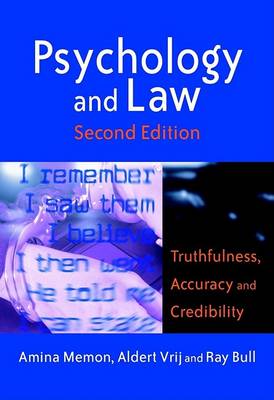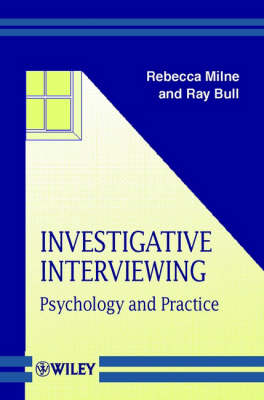Wiley Series in Psychology of Crime, Policing and Law
1 primary work • 5 total works
Book 35
Why do people lie, and how can lies be detected? There is now a substantial psychological literature relating to these fundamental questions, and this book reviews the relevant knowledge in detail, before focusing on guidelines for best practice in detecting deception. Psychological research is now available on individual differences in lying behaviour (gender differences, age differences and personality). There is also interesting research evidence of the ways in which deception is reflected both in real objective non-verbal behaviour and also in the perceived non-verbal cues which can help or mislead the observer in detecting deception. Although the book does include a major survey of the physiological aspects of deception and the polygraph as a method of detection, it also includes a thorough review of current knowledge of content analysis and validity assessment of speech and written statements. The book ends by discussing how professionals can improve lie detection by focusing on key aspects of the behaviour of the liar and by awareness and control of their own behaviour.Covers all three aspects of deception non-verbal cues, speech and written statement analysis, and physiological responsesFocuses on the behaviour and perceptions of the observer which can hinder the process of detectionBased on the author s expert review of the research and evidence, and on his practical experience and connections with several police forces"Without doubt, this book is the most important contribution to research and practice in lie detection to be published in years.
For the first time research about verbal, nonverbal and physiological correlates of truth telling and deception are reviewed comprehensively in one text. This book will benefit those who have to decide whether people are telling the truth or lying, because it both reviews contemporary research and provides practical guidelines." Frans Willem Winkel, Free University of Amsterdam President EAPL (European Association of Psychology and Law) This book is aimed at students, academics and professionals in psychology, criminology, policing and law.
For the first time research about verbal, nonverbal and physiological correlates of truth telling and deception are reviewed comprehensively in one text. This book will benefit those who have to decide whether people are telling the truth or lying, because it both reviews contemporary research and provides practical guidelines." Frans Willem Winkel, Free University of Amsterdam President EAPL (European Association of Psychology and Law) This book is aimed at students, academics and professionals in psychology, criminology, policing and law.
Detecting Deception
by Par Anders Granhag, Aldert Vrij, Bruno Verschuere, and P Granhag
Published 1 January 2014
Detecting Deception offers a state-of-the-art guide to the detection of deception with a focus on the ways in which new cognitive psychology-based approaches can improve practice and results in the field. * Includes comprehensive coverage of the latest scientific developments in the detection of deception and their implications for real-world practice * Examines current challenges in the field - such as counter-interrogation strategies, lying networks, cross-cultural deception, and discriminating between true and false intentions * Reveals a host of new approaches based on cognitive psychology with the potential to improve practice and results, including the strategic use of evidence, imposing cognitive load, response times, and covert lie detection * Features contributions from internationally renowned experts
This book provides a concise, practical guide to investigative interviewing based on psychological theory and research. It explains why certain guidelines should be followed and describes the underlying rationale for the investigative interviewing of any person, be they a suspect, witness, victim, complainant, or colleague. The book outlines what psychologists presently know about the most effective ways of interviewing witnesses/victims and suspects of all ages, including vulnerable groups.


